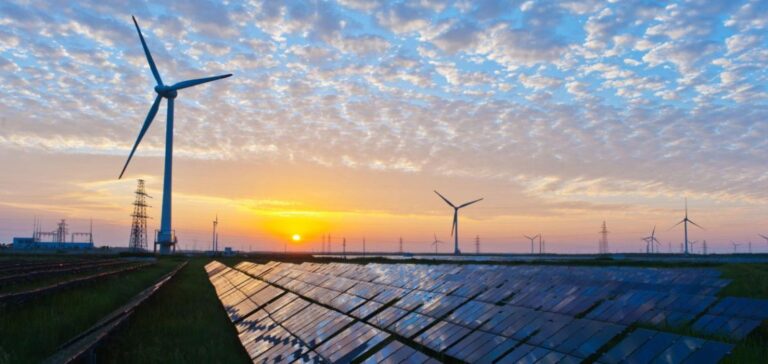Wind and solar provided 12% of global power generation in 2022, rising to a record high, but still in the shadow of coal, which remains the world’s leading source of electricity, according to a report by energy think tank Ember.
Russia’s invasion of Ukraine in February 2022, the gradual shutdown of Moscow’s gas pipelines and the subsequent price hike have prompted governments to rethink their energy policies and accelerate the shift to decarbonized energy. Combined, “all clean electricity sources (renewable and nuclear, ed. note) have reached 39% of the world’s electricity, a new record”, the rest being covered by fossil fuels (gas, oil, coal), the authors of the report point out.
For its fourth annual “Global Electricity Review” report, Ember used open data from the electricity sector in 78 countries representing 93% of the world’s electricity demand. In 2022, wind and solar power did well, reaching “a record 12% of global electricity,” according to the report. It was 5% in 2015.
More than 60 countries now get more than 10% of their power from it. The European Union leads the way, with 22% of electricity coming from renewable sources and a 24% growth in solar compared to the previous year. This breakthrough limited the use of coal, which nevertheless increased by 1.1% as electricity demand continued to grow. “Despite this progress, coal remained the world’s largest source of electricity, producing 36% of the world’s electricity in 2022,” the report notes.
The continued use of gas and coal to meet electricity demand has resulted in “emissions (of greenhouse gases) rising to a new record” of 12 billion tons of CO2 equivalent in 2022 (+1.3%). The report’s experts nevertheless consider that 2022 could be the year of “peak power sector emissions and the last year of fossil fuel growth” in this sector.
For 2023, they anticipate “a small decline in fossil generation (-0.3%), with larger declines in subsequent years as wind and solar deployment accelerates.” “In this decisive decade for the climate, this is the beginning of the end of the fossil age,” says analyst and co-author of the report, Malgorzata Wiatros-Motyka, quoted in the release.






















